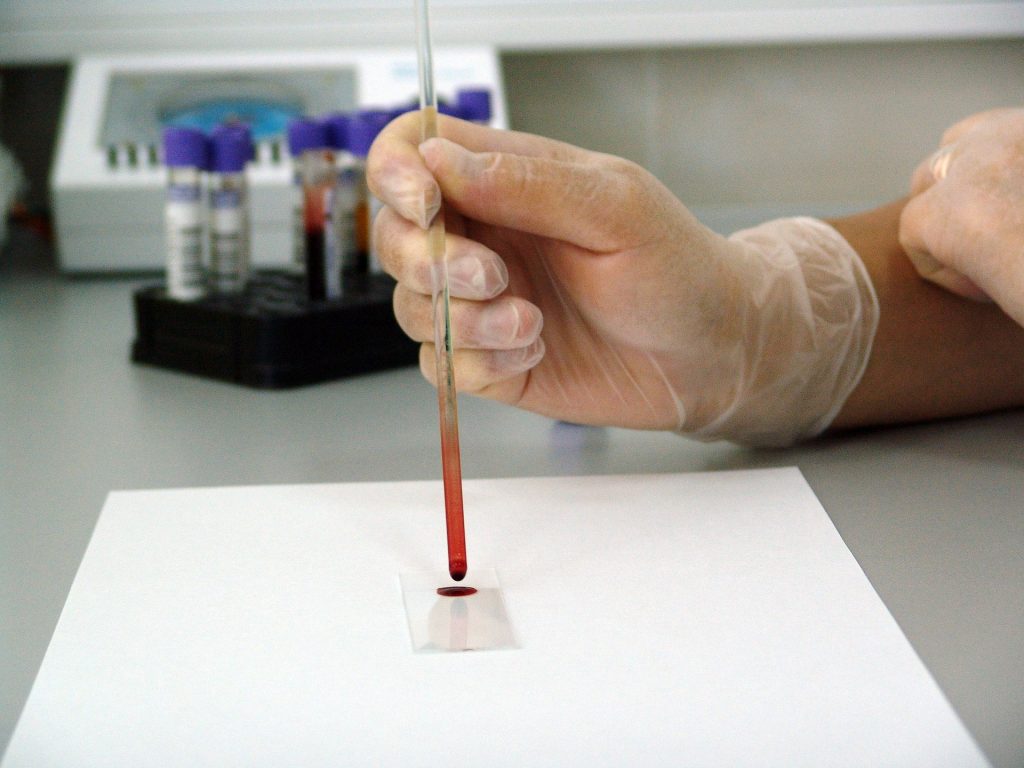04/10/2022
A molecule has been found in the blood that can predict whether a person will develop a more severe form of COVID-19
The molecule found makes possible an early diagnosis of whether a patient is at greater risk of suffering health complications as a result of this disease. The study has been led by a research group from the URV and the IISPV.

The molecule found makes possible an early diagnosis of whether a patient is at greater risk of suffering health complications as a result of this disease. The study has been led by a research group from the URV and the IISPV.
A biomarker in the blood will help to predict whether a person with Covid-19 is more likely to suffer health complications as a result of the disease. It is pyruvate, one of the metabolites that plays a key role in the process of supplying cells with energy. When it is altered and its levels in the blood are high, a person is more likely to have a worse prognosis. This is the main conclusion of a study led by a research team from the URV and the Pere Virgili Institute for Health Research (IISPV), with the collaboration of various hospitals, one of which is the Joan XXIII University Hospital in Tarragona. The results of this study have been published in the scientific journal Frontiers in Immunology.
This biomarker also enables the disease to be better treated and monitored, which improves the patient’s process of recovery. It should also be pointed out that the ability to identify it is a new therapeutic avenue that is useful for other inflammatory and metabolic diseases, since this biomarker not only provides energy to the cells, but is also directly involved in the health and functioning of all parts of the body, since it also sends signals to the cells.
The study builds on previous research which suggests that some metabolites involved in the process of obtaining energy from the cells could play a key role in the evolution of Covid-19 and the deterioration of the patient’s state of health, and even trigger severe complications.
Research such as this could be a turning point in the approach to Covid-19, since when it takes a turn for the worse and the patient’s health status becomes critical, the risk of death also increases. In this respect, the results of this study can be implemented in clinical practice. “Thanks to this research, the health staff who diagnose and treat Covid-19 in hospitals now have a reference or biomarker so that, with a simple blood test, they can identify whether patients have higher levels of this metabolite and, therefore, whether they are more likely to present complications,” explains researcher Sonia Fernandez-Veledo, who together with Victoria Ceperuelo, a researcher from the URV’s Department of Medicine and Surgery and Anna Rull, a researcher from the IISPV-URV, has led the project. “This technique is simpler and cheaper than the one used in the first study so it may have a powerful clinical impact on public health,” she says.
The research has been possible thanks to the collaboration of the Joan XXIII University Hospital in Tarragona, the Virgen del Rocío Hospital in Seville, and the Vall d’Hebron Hospital in Barcelona, which have all contributed by providing samples of patients.
Bibliographical references: Ceperuelo-Mallafré V, Reverté L, Peraire J, Madeira A, Maymó-Masip E, López-Dupla M, Gutierrez-Valencia A, Ruiz-Mateos E, Buzón MJ, Jorba R, Vendrell J, Auguet T, Olona M, Vidal F, Rull A, Fernández-Veledo S; Circulating pyruvate is a potent prognostic marker for critical COVID-19 outcomes; Frontiers in Immunology 2022; doi: 10.3389/fimmu.2022.912579.
